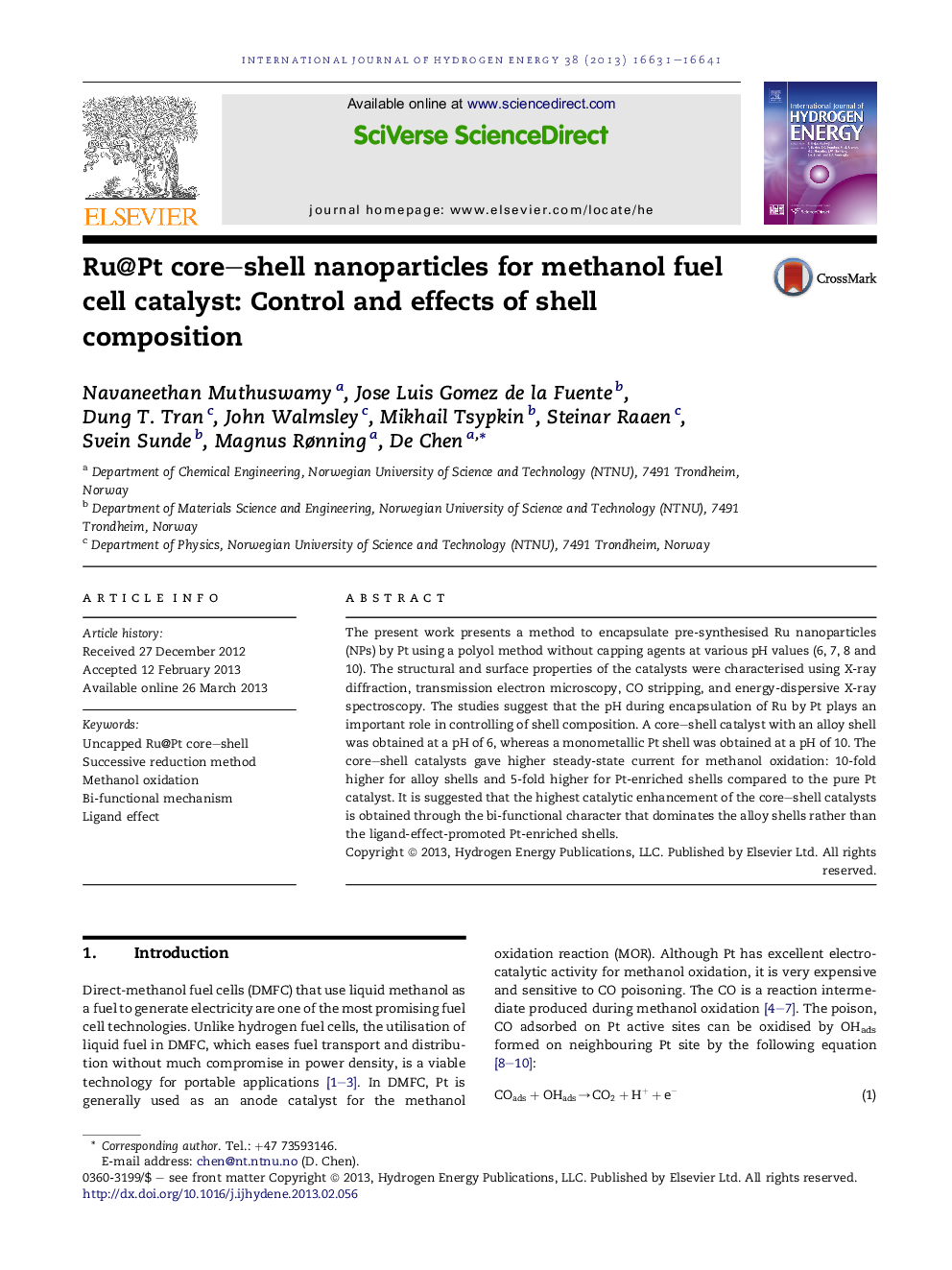| Article ID | Journal | Published Year | Pages | File Type |
|---|---|---|---|---|
| 1274231 | International Journal of Hydrogen Energy | 2013 | 11 Pages |
The present work presents a method to encapsulate pre-synthesised Ru nanoparticles (NPs) by Pt using a polyol method without capping agents at various pH values (6, 7, 8 and 10). The structural and surface properties of the catalysts were characterised using X-ray diffraction, transmission electron microscopy, CO stripping, and energy-dispersive X-ray spectroscopy. The studies suggest that the pH during encapsulation of Ru by Pt plays an important role in controlling of shell composition. A core–shell catalyst with an alloy shell was obtained at a pH of 6, whereas a monometallic Pt shell was obtained at a pH of 10. The core–shell catalysts gave higher steady-state current for methanol oxidation: 10-fold higher for alloy shells and 5-fold higher for Pt-enriched shells compared to the pure Pt catalyst. It is suggested that the highest catalytic enhancement of the core–shell catalysts is obtained through the bi-functional character that dominates the alloy shells rather than the ligand-effect-promoted Pt-enriched shells.
Graphical abstractFigure optionsDownload full-size imageDownload as PowerPoint slideHighlights► Ru@Pt NPs are highly active for methanol fuel cell. ► pH during Pt deposition is crucial for controlling shell composition. ► Shell composition determines the activity. ► Alloying of Pt with Ru in shell increases activity.
